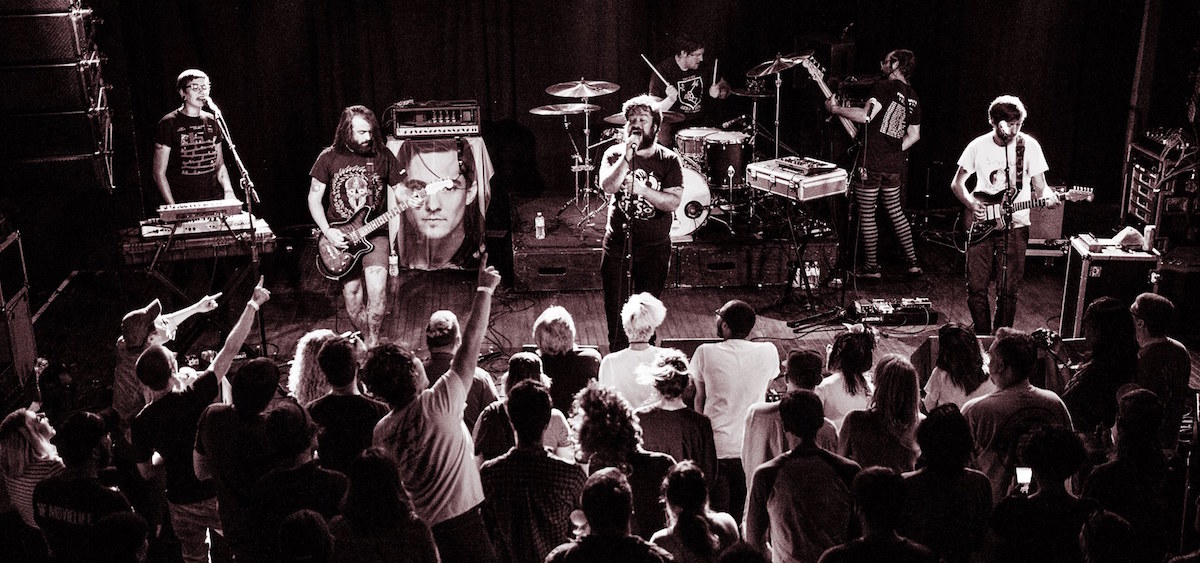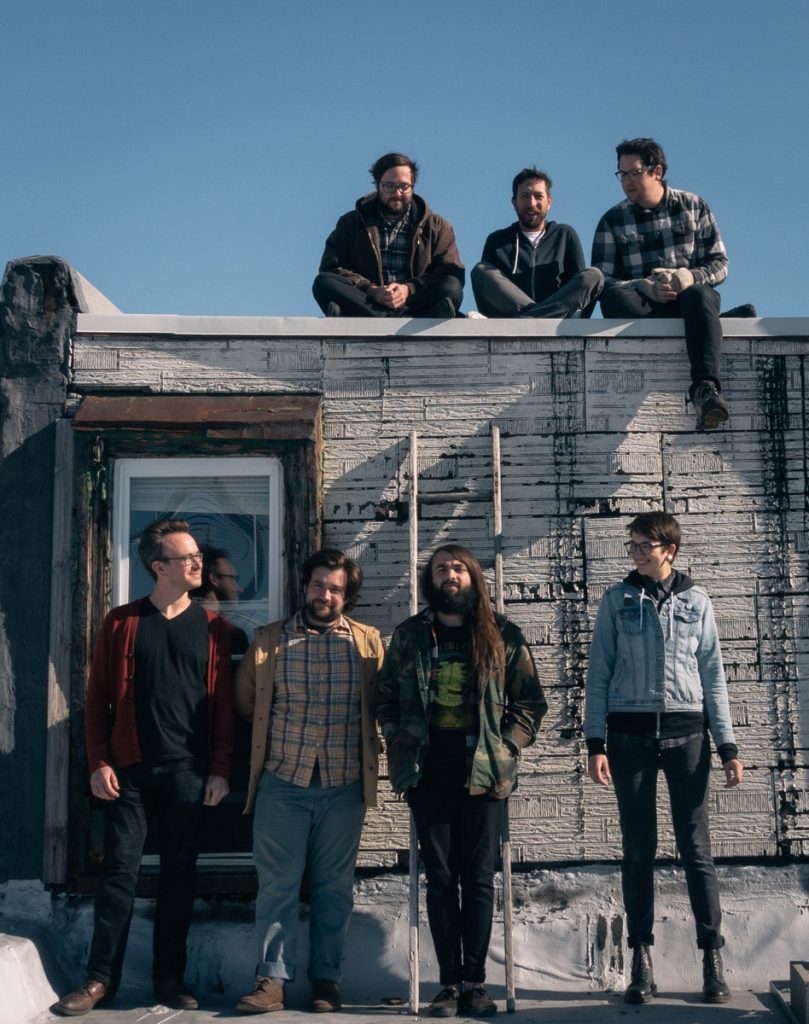Culture

Speaking With The World Is a Beautiful Place and I Am No Longer Afraid to Die
By: Emily Votaw
Posted on:
The World Is a Beautiful Place and I Am No Longer Afraid to Die is not only quite a mouthful, it’s also the critically lauded headliner for the 2018 Undercurrent Winter Festival, which is taking place at the Peoples Bank Theatre in Marietta Friday, February 9 through Saturday, February 10. Although the band itself has roots in Willimantic, Connecticut, lead vocalist David Bello hails from Parkersburg, WV, which ties the group in nicely with the festival’s regional music focus. The World Is a Beautiful Place and I Am No Longer Afraid to Die will headline the festival on Saturday.
WOUB’s Emily Votaw spoke with Bello about growing up in Parkersburg, loving experimental music, and how incredible the new Björk album is.

WOUB: I know you grew up in Parkersburg, WV, so I was curious how you ended up in the band?
DB: Well, actually I wasn’t in it in the beginning. It started with someone else from northern West Virginia and they ended up in Connecticut — I don’t know exactly why. I joined about December 2011, and I moved up there so I could be in the band. I had moved previously from Parkersburg to Morgantown and then to NYC, where I was living when a friend of mine from back in the day told me that the band needed a new singer. So I moved to Connecticut to join the band.
WOUB: Very cool, so what was your perception of the band when you joined?
DB: I was a big fan. I had a friend of mine in the band and I had met everybody else while they were on tour. They had played in Parkersburg, and they stayed at my apartment, so I got to meet everyone in the band then. I had actually followed them around a little bit before I joined, which was great
WOUB: I am very interested in hearing about the kinds of music you personally consume, given the sort of post-rocky sound of the band?
DB: I listen to a lot of things. A lot of stuff that is kind of similar to what we end up sounding like, but I think my main preference is experimental stuff. I really like music that everyone else thinks is weird. Everyone in the band has different tastes, but our primary interests are definitely weird music in general. I like repetitive experimental music a lot. What I have been listening to a lot recently is the most recent Björk album, I’m really into Björk.
WOUB: Very nice! Have you always been a musician?
DB: Maybe not always, but I started taking guitar lesson when I was 10 or 11 I think, and I loved it right away. I took lessons all the way through high school, and I was taught how to understand chords and the structure of basic guitar stuff. I wouldn’t say I’m technically proficient but I know enough to write songs, and I started to write a lot of songs back in high school, and ever since then I’ve been playing guitar everyday pretty much. Maybe a little less recently because I only sing in The World is a Beautiful Place. I still write songs and that is something that I have always done. I love listening to music and making music.
WOUB: Were you cognizant of the music scene in the region you grew up in, or was it just your personal interest in music that fueled your decision to become a musician?
DB: For the most part it was my own interest. I didn’t have a lot of friend who played music, I had a few who were great – but I mostly kept to myself. I learned how to record, and I recorded a lot of songs in my bedroom that I never showed anybody because nobody really cared. I remember going to a few shows while I was in high school, but not too many of my friends were interested in music like I was, so I kind of had to do it alone. It wasn’t until I went to college in Morgantown that I really met any other people with similar interests in music.
WOUB: What was it like to finally meet people who shared your same musical interests?
DB: Oh, it was great. I was 18 or 19, and I had just first moved out of my parent’s house and I was living on my own. Since a few of my friends and I all had an interest in music in common, we formed a few bands, like three or four different ones that we would play in throughout the year. I still keep in touch with most of those people, and it was a really good bonding experience.
WOUB: There are some seemingly political moments on Always Foreign, and I was curious if you had ever considered the band to be one to tackle political themes in their music?
DB: Somewhat. I don’t think we ever went into anything planning to give it direct message as much as we have on the most recent record. In the past it hasn’t always been so clear and direct. There has always been an underlying sort of anti-corporate, somewhat anti-government message in our music, but before that would only come out in little parts, and I wouldn’t really expect anyone to notice it. But on the most recent record we pushed that more out to the front because it seemed like it would be weird not to at this point.
WOUB: The band has a very intimate relationship with your fan base, I was wondering if you think that comes from the nature of the music or the scene the band spawned from?
DB: I think it’s a little bit of both, because the lyrics to our songs are definitely personal, and I don’t know if I can put a finger, on it, but I think that a lot of people have found a sort of sense of nostalgia in our music, or at least that’s the impression that I get from the fans I’ve talked to. Another part of that is that when fans reach out to us, we don’t ignore them. We talk to kids on social media, we talk to kids at shows, we’ve never been behind any kind of curtain. It feels nice.
WOUB: Has that relationship changed at all as the band has gotten older – and as maybe the fan base in general has stayed the same age?
DB: I think that to some degree, with us getting older, a lot of us don’t feel like we’ve aged in ways that we actually have. We certainly lead different lives than we did at the beginning of this experience, but I think that through touring and talking to kids who like our band, it kind of reconnects us to a part of our lives that might have felt like it had already fallen away.
Tickets for the Undercurrent Winter Festival are available now, with a pass for Friday set at $18, a pass for Saturday at $23, and a weekend pass set at $35. Tickets are available now online through this link. Check out WOUB’s feature on the general line-up at the festival this year, and make sure to keep up with woub.org/culture for photos from the festival throughout February 9 and 10.

